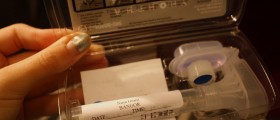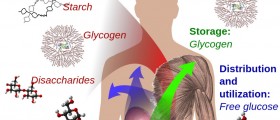Cortisol is a steroid hormone produced by the human adrenal gland. The adrenal glands are endocrine glands positioned on top of the kidneys. In humans, this triangular gland is responsible for releasing the hormones related with stress. This means that cortisol becomes released in response to stress. It is also released in response to a low level of blood glucocorticoids. Its primary function is to release blood sugar, to surpass immune system, and help in blood glucocorticoids. When it is released in response to stress, it serves to restore the homeostasis, or the stability of human body’s internal environment.
Symptoms of low cortisol
When the cortisol levels are low, the human metabolism is in a critical stage. This may result in low blood sugar and lack of glycogen. Glycogen functions as the secondary long-term energy storage in human cells. It is primarily made by the liver and the muscles. Lack of cortisol may also provoke low blood pressure and severely decreased cardiac output. Another prominent symptom of low cortisol levels is the discoloration of the skin, hyper pigmentation, since it activates increase in other hormones, resulting in overproduction of melanocyte cells in charge of the skin pigmentation. Patients with low cortisol levels typically feel constantly tired, weak, dehydrated and their immune system is weakened. Fatigue, headache, weakness, dizziness and low blood pressure upon standing, are some of the most prominent symptoms. More severe symptoms include weakness in the muscles, weight loss, depression, irritability and dehydration.
Causes of low cortisol
Sometimes, the reasons behind one’s low cortisol levels are quite simple and benign. This condition may occur because of the magnesium supplementation, since it decreases serum cortisol levels after aerobic exercise.
Normally relaxing activities such as music therapy, massage therapy, sexual intercourse, laughing or experience of happiness, can also affect the normal levels. This is because cortisol is primarily released in response to stress.
Soy-derived phosphatidylserine, Vitamin C, Omega 3 fatty acids, and black tea are also associated with lowering serum cortisol levels.
Sometimes, the reasons behind the low cortisol levels can be more serious, including the atrophy of the adrenal glands. Atrophy may occur as a result of tumor or some kind of the inflammation in the body that causes death of the cells or autoimmune response that affects the normal functioning of the human glands. Some diseases such as a polyendocrine deficiency syndrome, may affect the gland’s capacity to produce hormones. In very rare cases, a disorder known as Addison’s disease may be the underlying cause of low cortisol levels. In this disease, the adrenal glands fail to produce sufficient steroid hormones, including the cortisol.

















Your thoughts on this
Loading...